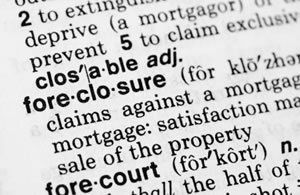
Loan Modification – Shadow Foreclosures May Slow Down Housing Recovery
New hope over last month’s unexpected rise in home sales may be a bit premature, even with aggressive intervention from the government. Studies show that progress from new programs may be undermined by “shadow foreclosures”—foreclosed properties that remain unlisted and unsold, causing potential delays in market recovery.
RealtyTrac, an Irvine, CA-based foreclosure listing firm, reports that up to 700,000 foreclosed homes are not included in the multiple listing service (MLS). The housing inventory is currently pegged at 3.8 million properties, or close to 10 months of waiting at the present sales pace. With this shadow supply, however, selling is expected to take a lot longer, causing a further drop in prices.
Meanwhile, the number of delinquent mortgages has continued to rise in the past few months, although foreclosure rates have largely stabilized. Experts believe that most of these homes will eventually be foreclosed, and that lenders may be unaware of how shadow foreclosures can affect their balance sheets.
Richman & Associates, a Glendale mortgage restructuring firm, believes that lenders should be more proactive in mortgage assistance. According to Jim Richman, the company’s president and founder, lenders are simply waiting for government bailout rather than actively helping homeowners and organizing foreclosures.
A former banker and U.S. Department of Housing and Urban Development (HUD) commissioner, Richman adds that lenders may be violating current rules by not accurately recording these foreclosures. Regulators, on the other hand, hardly enforce these rules because more banks will fail and have to be bailed out.
Surveys with foreclosure attorneys also show that few, if any, of the firms in several states are doing formal appraisals. Thomas Barrack Jr. of Colony Capital, a private equity firm based in LA, believes that lenders have taken to waiting for new programs every week instead of taking action.
Moe Bedard, president of Loan Safe Solutions, believes that some of the shadow supply comes from a “gray market” of foreclosures sold through in-house divisions. Lenders may also be privately selling defaulted documents to investors. However, he says, these cannot make up the entire supply of unlisted properties.
Banks cannot let go of these properties in one go, as it could drastically reduce prices in the most hard-hit communities. Home prices have already dropped as much as 30% in some communities, and experts say they can fall even further. Some areas may need to drop another 30%, says, Barrack, just to get back to normal levels from 1998.
 Several mortgage investors have urged the government to amend its $75-billion housing rescue plan. The investors, who collectively hold billions of dollars in securities backed by residential mortgages, said the legislation violates some of their rights and that they are considering legal action.
Several mortgage investors have urged the government to amend its $75-billion housing rescue plan. The investors, who collectively hold billions of dollars in securities backed by residential mortgages, said the legislation violates some of their rights and that they are considering legal action.

